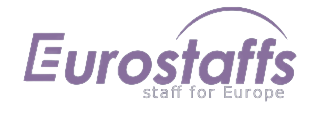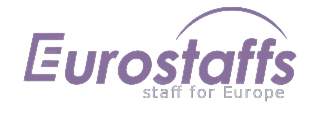Remote IT Jobs in Europe | IT Jobs Europe Guide 2025
Your Ultimate Guide to IT Jobs Europe and Remote IT Jobs Europe
The tech industry in Europe has entered a new era of possibilities, powered by the immense rise of remote work opportunities. Whether you're a software developer, IT support specialist, or a freelance tech enthusiast seeking the flexibility of working from home, IT jobs in Europe have never been this accessible or diverse.
This comprehensive guide will uncover the landscape of IT Jobs Europe, focusing on remote opportunities that allow IT professionals to succeed while enjoying unparalleled flexibility. Learn how to find remote IT jobs Europe, prepare for them, and thrive in this dynamic field.
Why the Boom in IT Jobs Europe?
The surge in IT jobs Europe is driven by widespread digitalization and a shift towards remote collaboration. Leading cities like Berlin, Amsterdam, and London are now recognized tech hubs that support innovative practices, including remote-first hiring policies. There are key reasons why the demand for remote IT jobs Europe continues to grow:
- Massive Digital Transformation: Businesses are investing in cloud computing, artificial intelligence, and IT automation. These trends require skilled IT professionals, many of whom are working remotely.
- Enhanced Talent Pool: Remote hiring allows companies to tap into talent from diverse European countries, eliminating geographic limitations.
- Cost Savings and Efficiency: Organizations significantly cut infrastructure costs by hiring remote IT staff.
Whether you're aiming to transition into IT support roles or develop cutting-edge software solutions, IT jobs across Europe promise lucrative, flexible, and satisfying work opportunities.
What Are the Most Popular Roles in Remote IT Jobs Europe?
Remote opportunities in the European IT market are abundant, catering to an array of expertise levels. Below are the leading job profiles generating excitement among tech professionals.
1. Remote Software Developer Roles
- Why It’s Popular:
Software development has consistently dominated the market for IT jobs Europe due to its high demand globally. Within remote IT jobs Europe, the need for developers specializing in frameworks like React, databases like MongoDB, or languages like Python remains strong. - Key Skills:
- Agile project management
- Cloud infrastructure expertise like AWS or Google Cloud
- Explore Online:
Job boards like We Work Remotely and EU Remote Jobs frequently list software development roles for varying experience levels.
2. Remote IT Support Specialist
- Role Description:
IT support professionals ensure seamless business continuity by resolving network, software, or hardware issues remotely. This role bridges the gap between technology and user satisfaction. - Skills in Demand:
- Troubleshooting techniques
- Communication paired with technical problem-solving
- Pro-Tip:
Search for remote IT support jobs within niche areas like cybersecurity or financial IT systems to find competitive positions.
3. Freelance IT Jobs
- Flexibility and Variety:
With freelance IT roles, professionals can work on projects like app development, network installation, or IT consulting in a flexible setting. Growing freelance networks allow IT specialists to handpick assignments. - Relevant Platforms:
Aside from traditional job sites, freelance-specific platforms like Freelancer and Toptal are excellent alternatives.
4. Cloud Engineer
- Modern Necessity:
Cloud computing is pivotal for companies looking to scale. Cloud engineers specializing in platforms like Azure and AWS are indispensable across Europe. - Grow Your Footprint:
Being certified in cloud engineering not only strengthens your C.V. for remote IT jobs Europe but also opens pathways into specialized DevOps roles.
Soft and Hard Skills Needed for IT Jobs Europe
Success in remote IT jobs Europe depends on both technical expertise and the ability to manage professional responsibilities remotely. Sharpen these skills to excel:
Technical Mastery
- Fundamental programming knowledge
- Cloud architecture solutions
- Familiarity with automation tools like Jenkins or Ansible
Soft Skills for Remote Success
- Clear Communication:
Working remotely means much of your communication will be written or via tools like Slack and Zoom. - Self-Motivation:
Employers value remote workers who are proactive problem-solvers. - Time Zone Coordination:
Many remote workers in Europe collaborate globally, requiring keen scheduling adaptations.
For a more detailed insight into necessary skills, check out our internal guide on Top Skills for Thriving in Remote IT Jobs.
How to Find Remote IT Jobs Europe?
Navigating job boards to search for opportunities in IT jobs Europe and remote IT jobs Europe can be daunting. Below are actionable ways to increase hiring potential:
1. Use Reputable Remote Job Boards
- Platforms to Target:
Job boards like Working Nomads and EU Remote Jobs streamline relevant positions based on roles and experience.
2. Tailor Applications for Remote Work
Optimize your resume to show previous remote work experiences and use keywords like remote IT support jobs to align with job descriptions.
3. Attend Virtual Networking Events
Actively participate in online conferences or webinars hosting top European IT companies offering remote roles. Networking is vital to finding hidden job opportunities.
4. Use LinkedIn’s ‘Open to Work’ Feature
This tool signals that you are open to remote opportunities in Europe and helps recruiters find you faster.
Benefits and Challenges of Remote IT Jobs Europe
The allure of remote IT jobs Europe extends beyond just working from home. It’s important to weigh both the pros and cons.
Benefits
- Flexibility:
Remote IT jobs empower professionals with the ability to work anywhere in Europe, erasing commute hours dramatically. - Global Opportunities:
Many companies now hire cross-continentally, offering exposure to international collaborations. - Enhanced Work-Life Balance:
Without office distractions, personal wellness improves significantly.
Challenges
- Isolation:
To counteract feelings of being disconnected, engage in coworking spaces virtually or physically. - Burnout Risks:
Clear boundaries between personal and work-life are crucial in preventing this issue.
Prepare for Your Remote IT Journey Today!
Are you ready to take advantage of Europe’s remote IT wave? Here’s a quick checklist for success:
- Customize your LinkedIn profile with IT Jobs Europe and remote IT jobs Europe keywords.
- Prepare for interviews by highlighting remote collaboration tools (Zoom, Slack) you’ve mastered.
- Regularly browse platforms like We Work Remotely and EU Remote Jobs for the latest listings.
Remote work continues redefining the boundaries of professional growth, especially within Europe’s tech ecosystem. Seize the chance to join cutting-edge businesses offering flexible remote IT jobs Europe and revolutionize your career path!

 French
French
 Arabic
Arabic
 English
English



